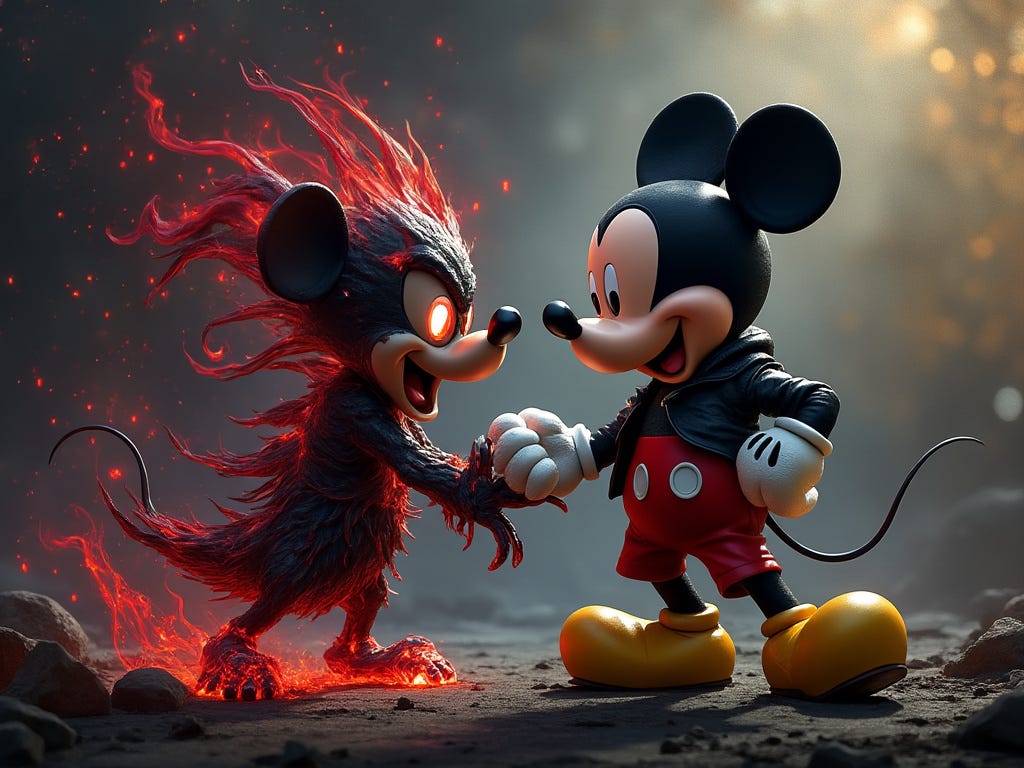Can bad people be good?
Sometimes I catch myself questioning whether certain people in my life are too morally compromised to remain close to. I witness their cruelty, greed, and unethical behavior, and I start to wonder if I’d be better off cutting ties entirely. It makes me ask, are they truly “bad” people?
And yet, I can't ignore the good in them—their generosity, their moments of care and kindness, their occasional willingness to admit when they're wrong, the vulnerability with me. So what, then, truly defines them?
There are serial killers who have been loving husbands. Hitler adored his dogs—though he ultimately poisoned his beloved Blondi to test the cyanide he would use on himself. Even history's most notorious villains have shown kindness to someone.
Some people take the stance that they’ll judge others solely on how they’re treated in their personal relationship. But if someone is good to you while being cruel to others—nasty to workers, abusive to animals, or harmful to people you care about—can that stance really hold any ground?
Every person is a mix of virtues and flaws, capable of both tremendous cruelty and great kindness. Some “bad” people have created beautiful art or built innovations that have transformed or even saved countless lives. But are they still “bad” if their positive contributions outweigh their wrongdoings? If someone abused a single person in unimaginable ways but saved a thousand lives, do we still label them as “bad”? How do we reconcile these opposing aspects of a person’s character? How do we weigh them against each other?
It seems clear that no one is purely one thing. People are complicated, and we are forced to grapple with these conflicting emotions. While simplifying individuals into categories of “good” and “bad” may offer us some mental clarity, the reality lies on a spectrum far more nuanced than those labels allow.
Still, moral relativism isn’t something I’m comfortable embracing.
I can acknowledge that no one is defined by just one aspect of their character, and that even those we consider “bad” based on their actions may not be beyond redemption. Just as those we deem “good” are not incapable of great evil.
Nevertheless, we must make judgments based on the evidence before us. What was the severity of the harm they committed? Is there a genuine potential for change or recognition of their wrongdoing? What personal values or moral boundaries have been crossed? Where do we draw our own red lines?
On a societal level, the question becomes even more complex. We often see public figures shunned for their behavior or celebrated despite it. Can we still appreciate their work, knowing the harm they’ve caused? Well, does their character alter the value of what they’ve created? If we didn’t know who made it, would we still admire their work? Would we still enjoy it?
That’s the undeniable reality of the situation. We can’t change what they’ve done, but nor can we change the value of their work when separated from them.
But how we treat such people in society, that’s a different thing.
Indeed, this tension between seeing someone's good qualities and confronting their harmful actions is where things get complicated.





